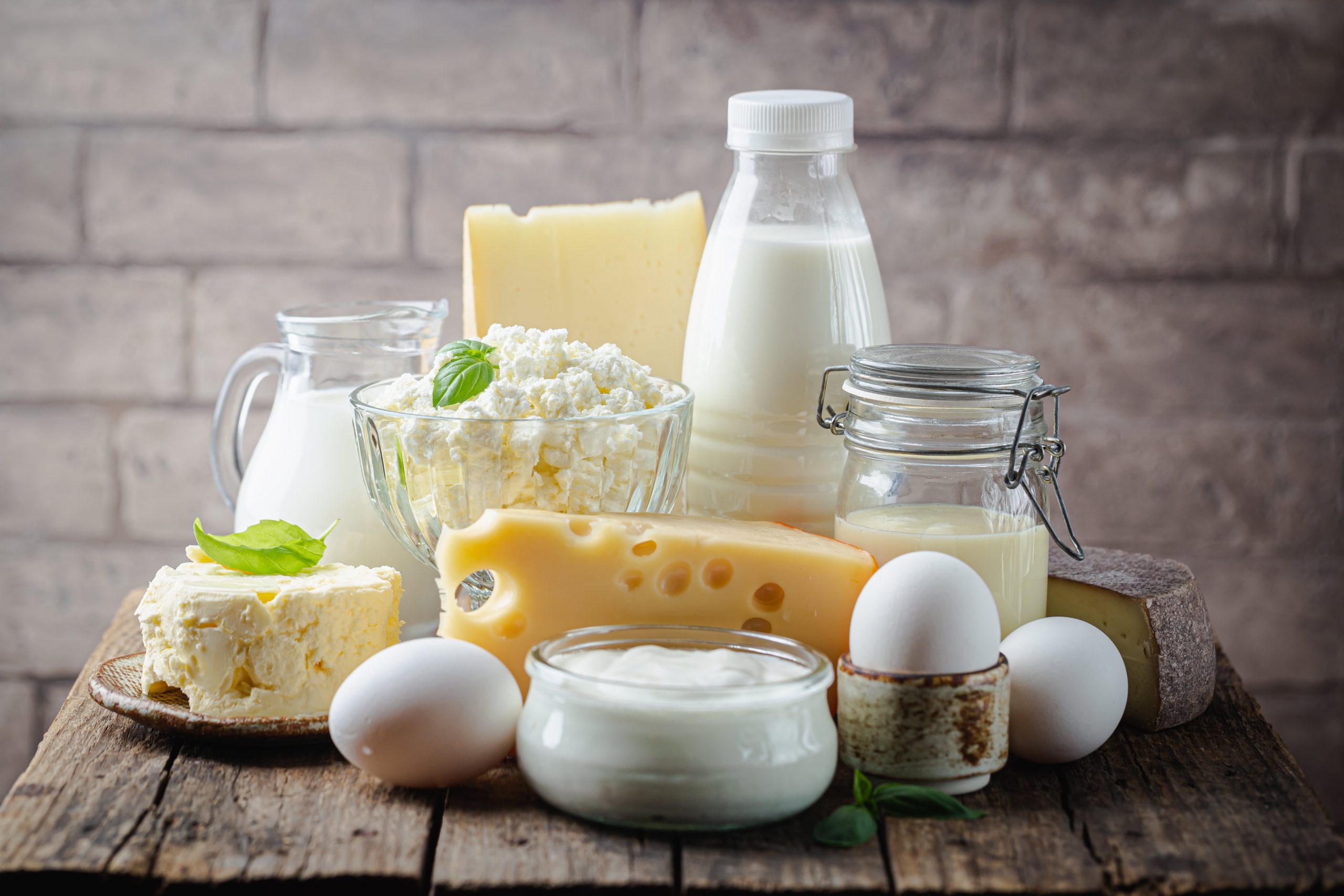People that are lactose intolerant can consume dairy foods such as butter, probiotic yogurt, hard cheese, heavy cream, kefir, and lactose-free milk since these products have low levels of lactose. Lactose is sugar found in most dairy products and is synthesized by the hormone lactase to form glucose. Lactose intolerant individuals often lack this enzyme, causing lactose indigestion and other disquieting symptoms. Lactose intolerant people avoid dairy products because they worry that dairy could result in unmerited side effects. Nevertheless, dairy foods are considered nutritious, boasting various nutrients such as protein, calcium, probiotics, vitamins, and minerals. Additionally, dairy products differ in the level of lactose, meaning that some of these products could be consumed in moderation with lactose-intolerant people.
Lactose intolerance-What is It?
It is estimated that approximately 75% of people across the globe are lactose intolerant. This digestive disorder is common among Asians and citizens of South America. The affected individuals do not have adequate lactase enzymes, often produced in the gut to help in breaking down lactose. It means that with limited or no lactase, the milk sugar lactose goes through the digestive tract undigested, resulting in uncomfortable symptoms such as stomach pain, diarrhea, gas, bloating, and nausea. Though most people that experience these symptoms avoid dairy products, they should know that not all foods from dairy have enough lactose to create unpleasant symptoms for those with intolerance. Some studies even suggest that individuals with lactose intolerance can consume foods as high as 12 grams of lactose without any side effects. Twelve grams of lactose is equivalent to drinking one cup of milk. Some of these dairy products include:
Butter
Butter is a milk product created by churning cream from milk to retrieve the solid part of the milk cream. Butter is 80% fat since the milk is separated, leaving the fat with limited lactose. The liquid part of milk harbors most milk sugar, meaning that the separated butter has just residual lactose. One study showed that 100 grams of butter only have 0.1 grams of lactose. This level is significantly low to cause any uncomfortable problems for lactose-intolerant people. Interestingly, butter derived from fermented milk products possess even less amount of lactose compared to regular butter.
Hard Cheese
Hard cheese is a product of cheese curds made by adding acid or bacteria to milk, separating the whey from the curds. Removing whey from cheese reduces lactose on cheese since most lactose is stored in the whey. If you are lactose intolerant, choose cheese that has stayed longer because aged cheese has bacteria breaking down lactose to lower levels. It means that the longer a cheese stays without consumption, the more its bacteria reduce lactose in them. Statistics show that 100 grams of aged cheese contain only traces of lactose.
Some hard cheese having a minimum amount of lactose include Swiss cheese, Parmesan, and cheddar cheese. However, some cheese, such as cottage cheese, Camembert, and mozzarella, may contain intolerable levels of lactose.
Probiotic Yogurt
Some studies have found that lactose-intolerant individuals digest yogurt faster than they would milk. The researchers suggest that the live bacteria in probiotic yogurts help break down lactose, thus reducing the levels available for you to digest. One study compared the lactose digestion rate between those coming milk and probiotic yogurt. The study established that lactose-intolerant individuals digested 66% of lactose from yogurt than the milk group. Additionally, the yogurt group exhibited fewer digestive symptoms than those consuming milk, with a difference of 60%.
Therefore, when buying yogurt, look for those labeled probiotics, signifying that they contain live bacteria to help with intolerance. Greek yogurt is another better choice because they are full-full fat and are strained off lactose. They are also rich in live bacteria for breaking down lactose.
Certain Protein Powders
Lactose intolerance can make it challenging to choose a protein powder since most of these powders come from milk whey. Whey often contains lactose and milk liquid, and athletes, intending to build muscle love using whey protein to help them build their bodies. Nevertheless, protein powders vary in the level of whey products available in these products. For example, Whey concentrate contains a limited amount of lactose with 80% protein, whey isolate has even lower levels of lactose and provides 90 % protein. Whey hydrolysate has the same level of lactose as whey contrate. Therefore, choosing whey isolate may be an ideal option for people who are lactose intolerant. However, sometimes different brands have different lactose content, thus the need to experiment to determine which powder works best for you.
Kefir
This traditionally fermented drink is made by mixing animal milk with kefir grains. Like probiotic yogurt, kefir also contains live bacteria that can contribute to the breaking down of lactose in milk. When consumed in moderation, this drink can be tolerated by lactose-intolerant individuals. For instance, one study compared lactose intolerant individuals consuming milk and those taking kefir. The result showed that kefir could alleviate intolerance symptoms by 54-71%
Heavy Cream
When milk is boiled or settles, cream often rises to the top and is skimmed to form heavy cream. Some creams are heavier with limited milk products, though others are light, having added milk products. Heavy cream has a high-fat content of approximately 37%. Additionally, it has less sugar, meaning low lactose levels with 15 ml of heavy cream carrying 0.5 grams of lactose. It means that including heavy cream in your tea, coffee or dessert should be okay even for lactose-intolerant persons.
Lactose-free Milk
There is milk that has added lactase enzyme that breaks down milk lactose. The enzyme added to the milk makes it tolerable by individuals allergic to dairy proteins. The lactose-free milk still poses all the other nutrients in regular milk, though it may taste sweeter.
The Bottom Line
Lactose-intolerant people don’t need to avoid all dairy products since some are very low in lactose. They need to be taken in moderate amounts to ensure they cause no side effects. Dairy products can still offer you the needed nutrients, despite being allergic to milk sugars.
- Chickpeas vs. Garbanzo Beans: What’s the Difference? - April 19, 2024
- How to Manage or Improve Anxiety - September 21, 2023
- The birth of a company - July 29, 2023









